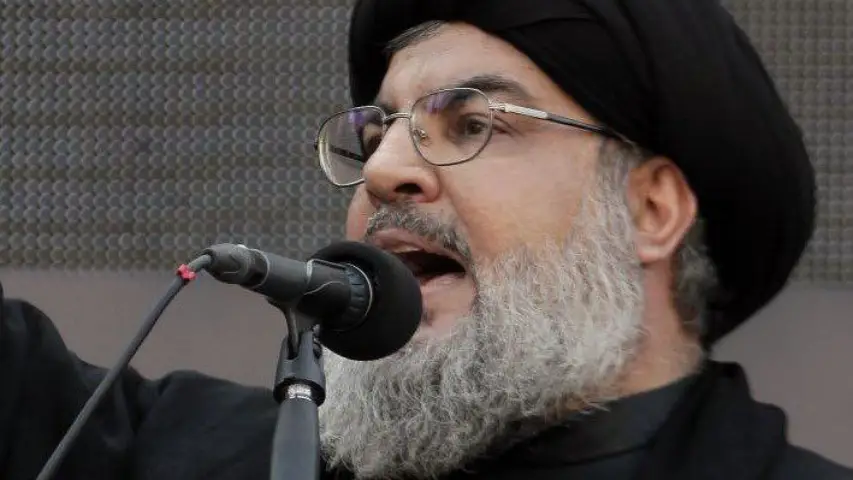With Israeli Defence Forces encircling Gaza, military experts are beginning to anticipate Lebanon’s response, with escalating border clashes pointing towards skirmishes along a second front. If the conflict prolongs, this is a possible outcome that could engulf this limited war into a full-blown regional conflict. With Hamas threatening execution of hostages as a presumed leverage, the risk to miscalculate strategic/tactical decisions are higher for both sides.
That said, the sequence of violence appears to be limited yet stable along the Blue Line – the United Nations demarcated boundary corresponding to the Lebanese southern border, which has witnessed limited shelling, with some incursions. According to a Beirut based expert on proxy militia, key leadership of anti-Israeli groups discussed coordination and cooperation at greater levels within the groups at wider extent in the last six months between Hezbollah in Lebanon, Palestinian Islamic Jihad (PIJ) and Hamas along with other Tehran-backed groups operating in Iraq, Yemen & Syria. Hence, it is incomprehensible for Hezbollah to simply stand aside and watch Israeli defence forces intensifying their offensives against Hamas in Gaza.
There is no doubt for Hezbollah not to feel the heat of Israeli offenses which may pressure the latter to escalate its operational tempo to a certain point of threshold. If the war in Gaza escalates, Hezbollah will employ offensive manoeuvres along the thin Blue Line. It may reiterate ambush tactics against Israeli foot patrols or intensify mortar/rocket strikes targeting Shebaa Farms, a mountainous region along the Lebanese southeastern border, under Israeli occupation since 1967. It may covertly launch rocket attacks into Israel (without taking credit, under the assumption of Hamas led attack). It may rally Tehran backed proxy militia groups to target Israel from the Syrian Golan Heights, where the group continues to enjoy certain presence.
From a preliminary appearance, Hezbollah continues to provide covert support to Hamas below a certain threshold, with an intent to avoid any escalated response from Israel. If Hezbollah escalates, a response from the Israelis could result in an ending escalated driven cycle of violence. To prevent a full-blown escalated conflict, Iran may have tied down Hezbollah’s operation to limited support. For Tehran, Hezbollah is the most potent external proxy component with military expertise, last resort perhaps to deter against and Israeli or US offenses against Iran. It is highly unlikely for Tehran to lay resources in the hands of Hamas that too, in a limited yet escalated conflict. By the same logic, Israelis do not wish to open a second front against Lebanon, instead prioritising rescue of hostages in Gaza and eliminating leftover Hamas fighters in the region. It is highly likely for Hezbollah to reinforce Hamas fighters in case of an Israeli ground invasion. However, if the level of violence increases and Hamas appears to be pinned against an aggressive ground force, Hezbollah may be forced to indirectly support Hamas through tactical advisers, engaging Israeli defence forces through rocket attacks, relieving some pressure on Hamas fighters.
It is highly unlikely for Israeli defence forces to employ a large-scale ground and air assault in Gaza and in Lebanon, simultaneously. Even for the highly trained and state of the art technology equipped Israeli Defence Forces, employing air power alone against Hezbollah will not be sufficient, giving necessary breathing space for the Hezbollah leadership to regroup. That said, reinforcing armour with sizeable ground forces deep into Lebanese’s territory will result in a serious loss of lives, a tactical gamble. That said, conducting a joint air and ground assault in Gaza and Lebanon simultaneously, is a critical decision for Tel Aviv, especially if Hamas fighters reinforce in smaller pockets elsewhere and strike. Confrontation with Hezbollah could escalate at least on the Syrian front, forcing proxies to target inside Israel from Iraq and Yemen.
For Hezbollah, if Tehran directs its leadership to assist Hamas with full force, the organizational leadership would do so at the cost of expunging all its military arsenal or might. This could expend all available resources in its expense, plunging Lebanon into an everlasting humanitarian misery, facing backlash even from its staunch Shia proponents in the country.
Taking the note of caution employed by Israel and Hezbollah on an escalated conflict, the best scenario for confrontation could be of sustained engagement between the two actors, largely localised along southern Lebanon and northern Israel, falling short of a full-blown war. In such a situation, Hezbollah may reinforce Quds Force with Radwan Brigade to conduct cross border skirmishes—which the group specialises. This could result in Israeli Air Force targeting critical infrastructure sites in Lebanon and conducting limited armour incursion crossing the Blue Line.
To prevent such an incursion, Hezbollah may resort to mass missile attack, forcing Israeli defence forces to call for long range precision guided munitions against key launch pads. Such engagements do not qualify for traditional definition of skirmish with the potency to escalate if either of the sides makes a tactical miscalculation. That said, Israeli Defence Forces may instead employ pre-emptive rocket strikes against known Hezbollah hide outs, with an intent to wipeout any potential arsenal, neutralising threat to Israeli cities.
With Hamas unpredictable and incomprehensible attack on southern Israel and Israel’s tactical encirclement of Gaza, the Israeli-Hezbollah engagement stands probable. With Israeli Defence Forces calling for reservists on the Southern Lebanon border, it is yet to see how this war unfolds.
Also Read: Hamas’ surprise attack on Israel opens Pandora’s box
(Anant Mishra specialises on Afghanistan, where he has served three combat deployments. He was adviser to key military and civilian leaders of the Ashraf Ghani government. Views expressed are personal and exclusive to India Narrative)




















